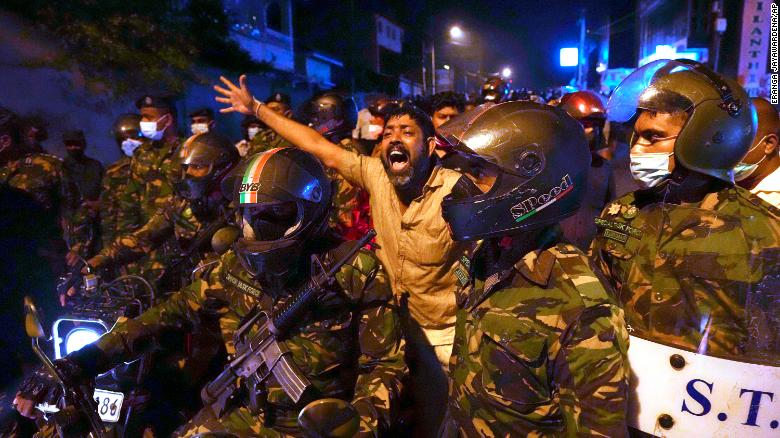After skirmishes between competing political parties, Sri Lankan authorities enforced a curfew on Monday, as resentment over the island’s worst economic crisis since independence grew.
Months of blackouts and severe shortages of food, gasoline, and medication have triggered weeks of overwhelmingly nonviolent anti-government rallies.
Officials said at least 20 individuals were hurt in the rioting in downtown Colombo.
The unarmed protestors who have been camped outside the President’s office since April 9 were assaulted with sticks and clubs, AFP reported.
Police used tear gas and water cannons on government supporters who broke over police lines to demolish anti-government demonstrator tents.
The president’s brother, Mahinda Rajapaksa, asked the general populace to “maintain restraint and remember that violence only breeds violence.”
“The government is determined to tackle the economic situation we are in,” he tweeted.
On Friday, the government declared a state of emergency, allowing the military to arrest and jail individuals after trade unions shut down the country to compel the Rajapaksa to resign.
The defence ministry claimed anti-government protesters were becoming “provocative and threatening” and interrupting key services.
To persuade the government to lift the emergency, unions plan daily rallies starting Monday.
Union head Ravi Kumudesh says employees from both the public and private sectors would attack the national parliament on May 17.
“We want the president and his family out,” Kumudesh stated.
Tens of thousands tried to attack President Rajapaksa’s private house in Colombo on March 31.
Official sources show the president may ask his brother Mahinda to step down to allow a unified government to run Sri Lanka.
But the country’s major opposition group has indicated it will not join any Rajapaksa-led administration.
The coronavirus epidemic hit Sri Lanka hard, reducing tourism and remittances.
Because of a lack of foreign cash, the government was forced to restrict several imports.
This has resulted in severe shortages, inflation, and prolonged power outages.
The nation defaulted on its $51 billion foreign debt in April.


